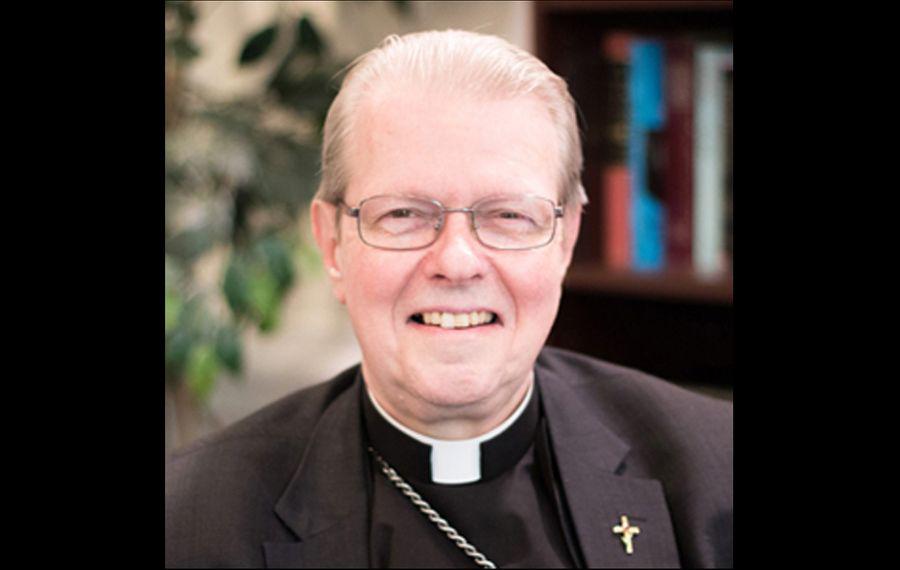Bishop sent to Buffalo says he wasn’t given ‘any documentation or any marching orders’
Bishop Edward Scharfenberger of Albany, New York, is in a tough spot. Appointed apostolic administrator of the Diocese of Buffalo after the resignation of Bishop Richard Malone, Bishop Scharfenberger is the public face of the Church in a place riddled with scandal and in dire need of urgent repair. But he apparently has little power to effect reform and little information with which to work.
Bishop Malone resigned after 18 months of intense public scrutiny of his leadership, which produced significant evidence of serious mismanagement and attracted the attention of state and federal prosecutors.
“I didn’t know quite what to expect,” Bishop Scharfenberger told Charlie Specht of ABC local affiliate WKBW in a wide-ranging interview that aired earlier this week, “because I really hadn’t been briefed at all.”
The bishop continued: “All I knew is what I read in the papers, to tell you the truth.”
He would have read enough, then, to know that there is a great deal amiss in the diocese, but not always enough to take informed and prudent steps toward remedy.
Observers – the faithful and clergy of Buffalo and beyond, as well as reporters – were surprised to hear Bishop Scharfenberger say that he had not received a copy of the report, which Bishop Nicholas DiMarzio of Brooklyn prepared after conducting a fact-finding mission to the diocese late last year.
“I was not given that,” Bishop Scharfenberger told WKBW, “I don’t know what it contains.
“I was not given any documentation or any marching orders that ‘you’re here to clean things up,’ or anything. I was just told to be the administrator of the diocese.”
He also told WKBW that he’s used most of what time he has spent in Buffalo since receiving the temporary assignment a month ago to get to know the people of the diocese and its internal structure, and to get his head around the mechanics of what is a complex – and by every account highly dysfunctional – ecclesiastical apparatus and clerical culture.
The DiMarzio report would presumably have made that part of the job easier, but the report is the property of the Holy See, which has made the report privileged and confidential. While this is standard operating procedure for apostolic visitations, one wonders why it should be kept from the eyes of anyone who has to deal with the problems the report was commissioned to discover in the first place.
“[Bishop Scharfenberger] was provided with an overview of the general findings of the apostolic review,” Albany’s diocesan communications director Mary DeTurris Poust told the Catholic Herald in response to follow-up queries sent via email, “but was not provided with the actual report.”
She said she did not know whether Bishop Scharfenberger specifically asked Bishop DiMarzio for a copy, but noted that Bishop Scharfenberger has said he has discussed the report with Bishop DiMarzio.
By press time, the Holy See Press Office had not responded to queries from the Herald, regarding the reasons why the Vatican did not make Bishop Scharfenberger privy to the report when asking him to take the apostolic administrator’s job.
There is a lot more in the interview, including some very welcome statements from Bishop Scharfenberger. “Criminality is not entitled to secrecy,” he said, in response to a question regarding diocesan transparency.
The Catholic Herald asked whether Bishop Scharfenberger intended his remark to cover crimes at both canon and civil law. “This includes both canonical offenses as well as criminal,” his spokeswoman said.
“I would make a distinction,” Bishop
The Herald asked Poust via email what, if any steps Bishop Scharfenberger has taken – or intends to take – to ensure that the clergy and faithful of Buffalo are apprised of their rights under the sweeping reform legislation Pope Francis enacted and then decided not to use in Buffalo: Vos estis lux mundi.
“Bishop Scharfenberger has been apostolic administrator for just one month and is working through a range of issues and defining priorities,” his spokeswoman responded. “He will continue to communicate regularly with the Catholic faithful, the clergy and all members of the diocese on key issues as they surface.”
Last year – several months after Vos estis took effect – a senior cleric in Buffalo told the Herald he did not know how to file a Vos estis complaint. Whistleblower Siobhan O’Connor told the Herald in November that she never filed a Vos estis complaint because she assumed the evidence already before the public was sufficient to trigger an investigation. “I thought: ‘Why should I?’,” O’Connor said. “The evidence was already there.” For reasons powers that be have not seen fit to disclose, Pope Francis decided to go another way.
Legal and semantic niceties aside, the issue for Catholics the world over is one of trust: the faithful do not believe Church leadership have their best interests to heart, and will continue to doubt the commitment of hierarchical leaders to that very basic requisite until there is a genuine reckoning and real — not just paper — reform.
“What I do sense is a certain impatience,” Bishop Scharfenberger told WKBW. “You know, ‘We should have done a lot of things yesterday’ – and I want to do things in a very deliberative way, so that we get it right.”
In point of fact, Bishop Scharfenberger has been quite frank from the very beginning, that he has no specific mandate – no “marching orders”, to use his phrase – for Buffalo. What happened in Buffalo before Bishop Scharfenberger got there is not his fault. The Holy See has not made it any easier for him to take effective responsibility for the crisis.
